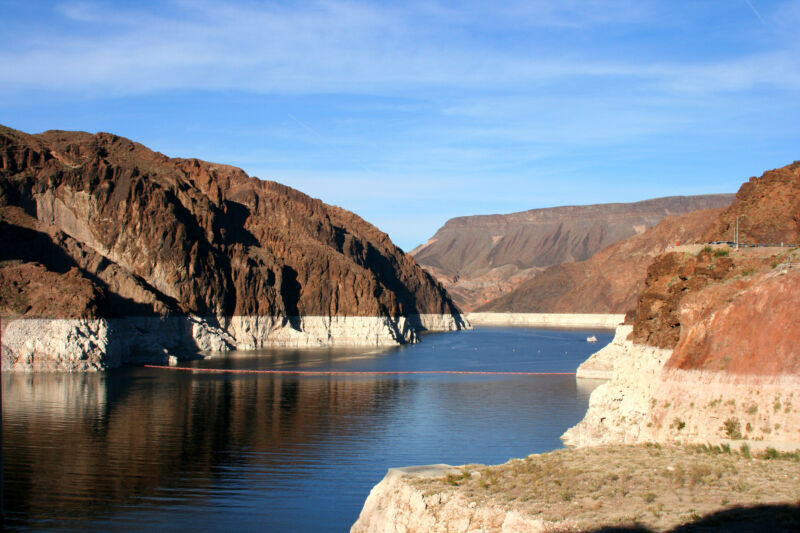Climate change is drying up the Colorado River

Enlarge / The shores of Lake Mead, faded from previously higher water levels. (credit: Chris Richards / Flickr)
In 2014, the Colorado River reached the ocean for the first time in 16 years. Most years, the river doesn't make it that far because it has been dammed and diverted along the way, supplying fresh water to approximately 40 million people and supporting agriculture and economic activity in the dry Southwestern United States.
As climate change disrupts historical patterns of rainfall and temperature, the Colorado River has not been faring well, and it's getting even increasingly unlikely that the river will reach the sea again. A paper published this week in Science reports that the river's flow has been declining by an alarming 9.3 percent for every 1C of warming-and that declining snow levels are the main culprit for this dramatic decline.
Some historyFor a resource as critical and carefully managed as the Colorado River, precision is key. Just knowing that it's declining in response to climate change is not enough; more crucial is knowing how much that decline is likely to be.
Read 9 remaining paragraphs | Comments